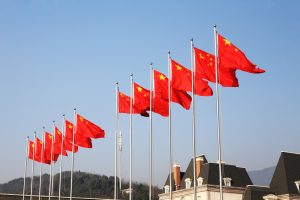Right now, one of the most important and exciting areas of international politics is China. However, when it comes to major events in China, there is a tendency among Western media and analysts to examine these events only through a Chinese context. Events and trends such as a declining birthrate, industry layoffs, and the introduction of data regulations laws are viewed through a “China watching” lens. They are understood as being a part of the unique circumstances of China’s authoritarian party system and are caused primarily by the Communist Party’s maleficence or ineptitude.
Although the Chinese government is definitely responsible for intentionally or unintentionally exacerbating these events and trends, it is not the main reason why these things are happening. These developments are far better understood on a global scale.
The recent sharp decline of the birthrate in China made a lot of news, understandably so as it is the first time that the population has declined since the Great Leap Forward. China is far from the only country facing a sharply declining population, however. Japan and South Korea are facing even lower birthrates, causing Japanese Prime Minister Kishida Fumio to declare that Japan “is on the verge of whether we can continue to function as a society.” Western countries are similarly facing declining birthrates, though their populations continue to increase through immigration.
Even India, which just surpassed China to claim the title of the world’s most populous country, is showing concern over its slowing birthrate. In the eastern Indian state of Odisha, the birthrate dropped 21 percent in 10 years, causing concern with the state’s Planning and Convergence Department.
There are of course good reasons why China’s falling birthrate has brought so much attention. China is still a developing nation, and its economy will struggle with both the rising number of elderly needing aged care and the depletion of its labor force. There is also the sense that the Chinese government has caused this calamity through the one child policy and other repressive measures.
Although it true that the one child policy has intensified the low birthrate crisis for China compared to other countries, it is important to look at the main motivation behind this trend. The biggest reason Chinese citizens are choosing to wait longer to have kids or not have kids at all is that the financial cost is too great a burden. The costs of raising children in terms of healthcare and education, or buying a house or apartment, are seen as too much to bear for young couples in China causing them to opt out, preferring a dual income, no kids lifestyle.
This concern of the financial burden of raising children is the same motive driving low birthrates in countries around the world. While currently more intense for China, the falling birthrate is a global issue exacerbated by rising cost of living. Yet when it comes to China, the low birthrate is seen as a direct result of the government’s actions, ignoring the full picture.
Another example can be seen in recent tech layoffs. In the past month, several large companies in the U.S. tech industry have undergone major layoffs. These include Alphabet (12,000 employees), Amazon (18,000), Meta (11,000), Twitter (4,000), Microsoft (10,000), and Salesforce (8,000). The financial reasoning behind these layoffs is twofold: These companies over-hired during COVID-19 lockdowns and advertising revenue is not the deep well of income that it used to be. Economists have been quick to point out that this is not a sign of a weakening U.S. economy, but instead more of a reorganizing.
This is a different message from last year, when Chinese tech giants such as Alibaba and Tencent similarly had large layoffs. Driven by a slowing economy, strict COVID-19 restrictions, and increasing government regulations, the tech industry is no longer the safe bet it used to be in China’s job market.
Despite the different narratives, there are similarities in the stories of fired tech workers from China and the United States. Companies riding high on massive growth hired aggressively, promoting high salaries and workplaces filled with perks. Now facing a slowing economy, they have chosen to cut down on staffing. However, when the layoffs happened first in China, the discourse focused on the role of the government and the tech crackdown. Again, while government policies were a factor, the narrow focus ignored the global trends of the world economy, which is realigning through COVID-19 and new trends in tech.
China is an important area for analysis and discourse in international politics, but not all of its problems are unique or as self-inflicted as some pundits claim. Trends relating to birth rates and tech industry layoffs are a part of a broader story of global change. China is not within its own distinct ecosystem, but a big part of the world, driven by the same economic forces the Western world is currently facing. To understand China, we need to also understand the world that China is in.

































